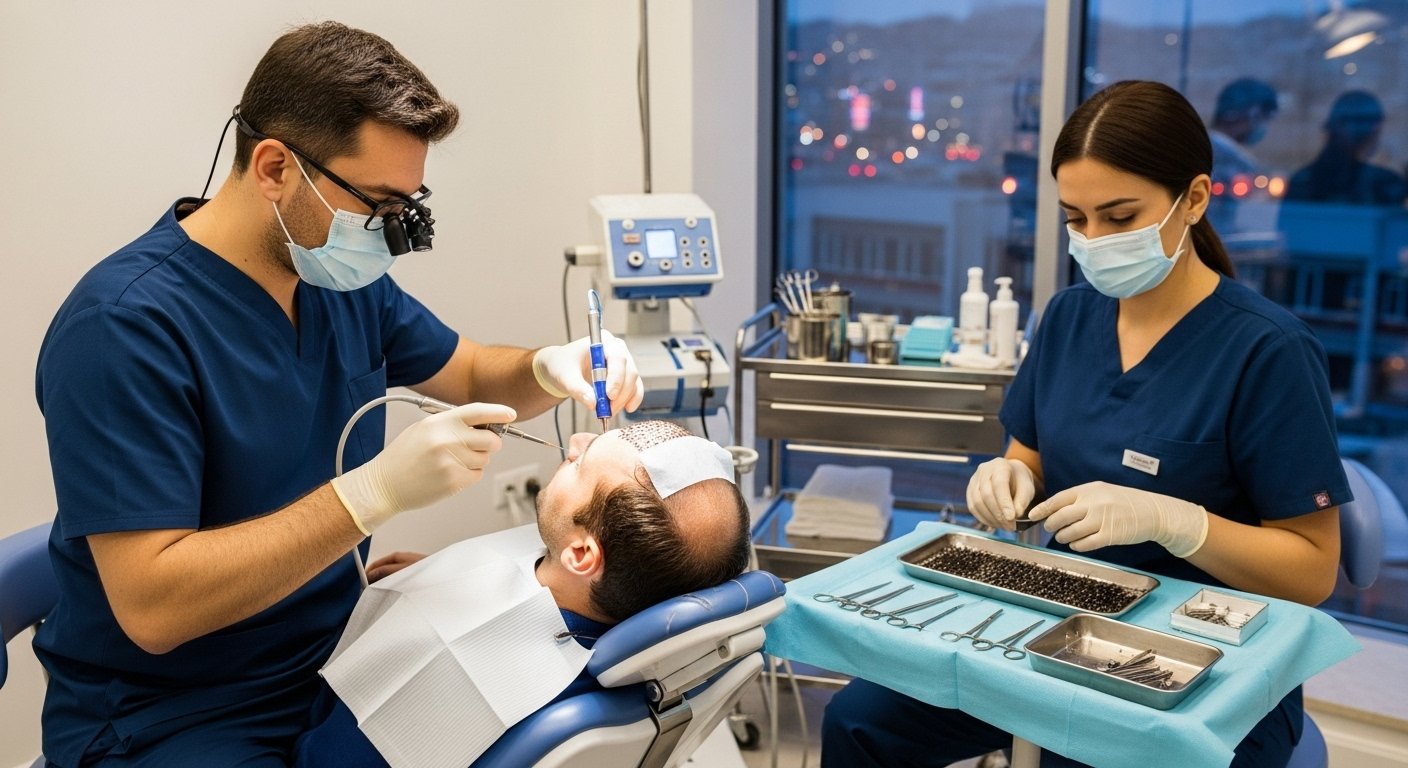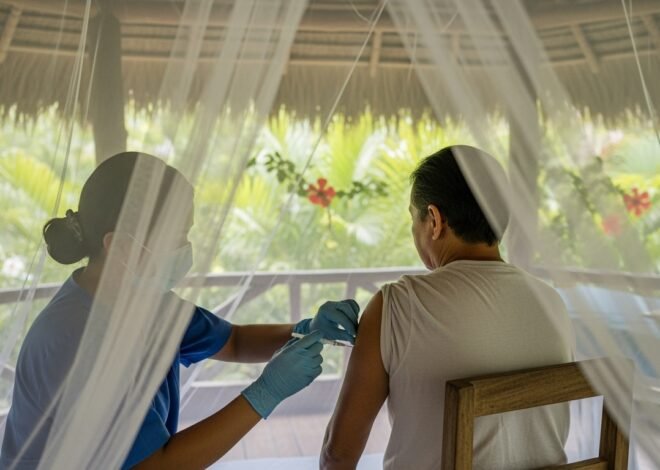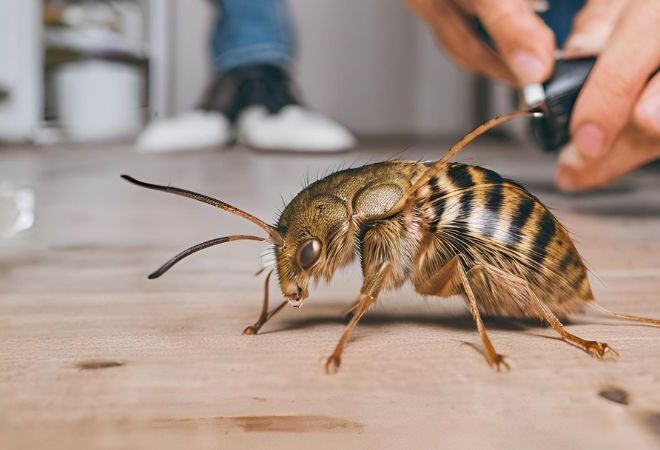
Hair Transplant Turkey Cost: Complete 2025 Price Guide & What’s Included
Are you considering a hair transplant but worried about the price? Turkey has emerged as the world’s leading destination for affordable, high-quality hair restoration procedures, attracting over 1 million international patients annually. Understanding hair transplant Turkey cost is essential for making an informed decision about your hair restoration journey.
In 2025, the average cost of a hair transplant in Turkey ranges from $1,500 to $5,000 for a complete all-inclusive package. This represents a savings of 50-80% compared to prices in the United States, United Kingdom, or Europe, where similar procedures can cost anywhere from $8,000 to $45,000. Despite the significantly lower prices, Turkey’s clinics maintain exceptional quality standards with success rates exceeding 90%.
Understanding Hair Transplant Pricing in Turkey
The cost of a hair transplant in Turkey depends on several key factors that influence the final price. The most significant variable is the technique selected for your procedure. Follicular Unit Extraction (FUE) typically costs between $1,850 and $3,500 for up to 3,000 grafts. Sapphire FUE, which uses advanced sapphire blades for more precise incisions and faster healing, ranges from $2,050 to $3,450. Direct Hair Implantation (DHI), the most advanced technique utilizing the Choi implanter pen, generally costs between $2,250 and $4,050.
The number of grafts required also affects pricing significantly. Most patients need between 2,000 and 5,000 grafts to achieve their desired results. A 2,000-graft procedure typically costs around $1,850 to $2,250, while a 5,000-graft session can range from $3,250 to $3,850 depending on the technique. Clinic reputation, surgeon experience, and location within Turkey also influence the final cost, with Istanbul-based clinics offering the most competitive prices due to high competition.
Premium services such as stem cell therapy, PRP (Platelet-Rich Plasma) treatments, or exosome therapy can add $1,350 to $2,000 to the base package price. However, these advanced treatments often enhance graft survival rates and promote faster recovery, making them worthwhile investments for many patients.
What’s Included in All-Inclusive Turkish Hair Transplant Packages
One of the most attractive aspects of choosing Turkey for your hair transplant is the comprehensive all-inclusive package that most reputable clinics offer. These packages are designed to provide international patients with a seamless, worry-free experience that covers virtually every aspect of your medical journey.
Standard all-inclusive packages typically include the complete surgical procedure with local anesthesia, all necessary medications, and immediate post-operative care. Accommodation in 4 or 5-star hotels for 3 to 4 nights is standard, allowing adequate time for the procedure and initial recovery. VIP airport transfers between the airport, hotel, and clinic ensure comfortable transportation throughout your stay.
Post-operative care is comprehensive and includes a specialized aftercare kit containing medical-grade shampoo, lotion, and healing products. Most clinics provide English-speaking patient coordinators who guide you through every step, from arrival to departure and beyond. Follow-up consultations, both in-person and online, are included to monitor your progress and address any concerns during the recovery period.
The pre-operative consultation involves a thorough scalp analysis, hair loss assessment, and customized treatment plan tailored to your specific needs. Blood tests and medical evaluations ensure you’re a suitable candidate for the procedure. Some premium packages even include additional perks such as city tours, extended hotel stays, or translation services in multiple languages.
Comparing Hair Transplant Costs: Turkey vs Other Countries
The cost difference between Turkey and Western countries is substantial and represents one of the primary reasons why hundreds of thousands of patients travel to Turkey annually for hair restoration. In the United States, a hair transplant typically costs between $8 to $15 per graft, resulting in total procedure costs ranging from $12,000 to $45,000. For a standard 3,000-graft procedure, American patients can expect to pay $20,000 to $35,000 or more, with costs often limited to the surgical procedure alone.
United Kingdom patients face similar pricing challenges, with costs ranging from £4 to £8 per graft and total procedure prices between £5,000 and £15,000. A typical FUE hair transplant in London costs £5,800 to £12,500, while DHI procedures can exceed £13,200. These prices rarely include accommodation, transfers, or comprehensive aftercare support.
European countries such as Germany, France, and the Netherlands charge between €4,000 and €13,000 for similar procedures. Even in countries with lower overall costs, Turkey remains significantly more affordable while maintaining comparable or superior quality standards.
Turkey’s competitive pricing stems from several economic factors. The favorable exchange rate between the Turkish lira and major currencies like the US dollar, British pound, and Euro makes services substantially cheaper for international patients. Lower operational costs, including labor expenses, rent, and infrastructure, allow Turkish clinics to offer premium services at a fraction of Western prices. High competition among over 1,000 specialized clinics in Istanbul alone drives prices down while pushing quality standards up.
Popular Hair Transplant Techniques and Their Costs
Understanding the different hair transplant techniques available in Turkey helps you make an informed decision about which method best suits your needs and budget. Follicular Unit Extraction (FUE) is the most widely used technique worldwide and remains popular due to its versatility and proven results. The procedure involves extracting individual hair follicles from the donor area using a micro-punch tool and implanting them into the recipient area. FUE leaves minimal scarring, heals quickly, and allows for natural hairline design. Success rates exceed 90% when performed by experienced surgeons. In Turkey, FUE procedures cost between $1,850 and $3,500 for up to 4,000 grafts.
Sapphire FUE represents an advanced evolution of traditional FUE, utilizing ultra-sharp sapphire blades instead of steel to create recipient site incisions. The V-shaped incisions made by sapphire blades cause less tissue disruption, leading to faster healing and reduced scarring. This technique allows for higher graft density, achieving fuller results with more natural-looking hairlines. The antimicrobial properties of sapphire blades reduce infection risk and promote safer recovery. Prices for Sapphire FUE in Turkey range from $2,050 to $3,450.
Direct Hair Implantation (DHI) is considered the most advanced technique currently available, offering the highest precision and control. The procedure uses a specialized Choi implanter pen that creates the recipient site and places the graft simultaneously in one motion. This reduces the time grafts spend outside the body, potentially improving survival rates. DHI allows for unshaved hair transplants in many cases, making it ideal for patients who cannot take extended time off work. The technique provides exceptional control over angle, depth, and direction of each follicle, resulting in extremely natural-looking results. DHI procedures in Turkey typically cost between $2,250 and $4,050.
Why Hair Transplant Costs Are Lower in Turkey
Many prospective patients wonder how Turkey can offer such dramatically lower prices while maintaining high quality standards. The answer lies in a combination of economic, competitive, and structural factors that create a uniquely favorable environment for medical tourism.
The exchange rate advantage remains the most significant factor. The Turkish lira has remained relatively weak against major currencies like the US dollar, British pound, and Euro, making all services in Turkey substantially cheaper for international visitors. This currency differential means that even premium services cost a fraction of what patients would pay in their home countries.
Labor costs in Turkey are considerably lower than in Western countries, allowing clinics to employ highly qualified medical teams at affordable rates. Despite lower salaries by Western standards, Turkish surgeons often have more extensive experience than their international counterparts, performing 300-500 procedures annually compared to 50-100 in many Western clinics. This high volume translates to superior expertise and more refined techniques.
Intense competition among Istanbul’s 1,000+ specialized hair transplant clinics forces providers to offer competitive pricing while continuously improving quality. This market dynamic benefits patients, who can access world-class care at remarkably low prices. Government support for medical tourism through infrastructure investments, streamlined regulations, and promotional initiatives further reduces operational costs for clinics.
Lower operational expenses including rent, utilities, and administrative costs allow Turkish clinics to maintain state-of-the-art facilities without passing excessive overhead onto patients. The all-inclusive package model, which bundles accommodation, transfers, and aftercare, achieves economies of scale that individual itemization cannot match.
Success Rates and Results Timeline
Understanding what to expect after your hair transplant helps set realistic expectations and ensures you’re prepared for the recovery journey. Turkish clinics consistently report success rates exceeding 90% for both FUE and DHI techniques. These impressive outcomes result from experienced surgeons, advanced techniques, and comprehensive aftercare protocols.
The recovery timeline follows a predictable pattern. During the first week, you’ll experience mild swelling, redness, and small scabs around the transplanted area. These symptoms are normal and typically subside within 7-10 days. The initial healing process is crucial for graft survival, requiring careful adherence to post-operative instructions.
Between weeks 2-4, the shedding phase occurs as transplanted hair falls out. This phenomenon, known as “shock loss,” alarms many patients but is completely normal and temporary. The hair follicles remain intact beneath the scalp, preparing for new growth. During months 1-3, the follicles enter a resting phase with little visible growth. This period requires patience as the foundation for permanent hair growth develops.
New hair growth begins appearing between months 3-6, starting as fine, thin strands that gradually thicken. By months 6-9, noticeable improvements in density and thickness become visible. The hair continues maturing and strengthening during this phase. Between months 9-12, substantial results become apparent with significantly improved density and natural appearance. Final results are typically visible by 12-18 months, when the transplanted hair fully integrates with your natural hair.
Factors affecting individual success rates include patient age and overall health, quality and density of donor hair, strict adherence to post-operative care instructions, and surgeon expertise and experience. Younger patients with healthy donor areas generally achieve better results.
Choosing the Right Clinic in Turkey
Selecting a reputable clinic is the most important decision in your hair transplant journey. With over 1,000 clinics operating in Turkey, knowing what to look for protects you from substandard providers and ensures optimal results.
Doctor qualifications and involvement should be your first priority. Verify that board-certified surgeons with specialized training in hair restoration perform your procedure. Be wary of clinics where technicians handle critical surgical steps, as this practice increases complication risks and reduces result quality. Ask about the surgeon’s experience, including how many procedures they perform annually and their specialization in specific techniques.
Clinic accreditation provides assurance of quality and safety standards. Look for facilities accredited by recognized organizations such as the Joint Commission International (JCI), Turkish Ministry of Health, or European medical bodies. These certifications indicate adherence to international healthcare standards and regular quality audits.
Patient reviews and testimonials from verified sources offer valuable insights into real experiences. Check multiple platforms including Google Reviews, Trustpilot, and specialized medical tourism forums. Pay attention to before-and-after photos that show results similar to what you hope to achieve. Be cautious of clinics with exclusively perfect reviews or those that cannot provide verifiable patient testimonials.
Facility standards matter significantly for safety and outcomes. Visit the clinic’s website or request a virtual tour to assess hygiene standards, equipment quality, and overall professionalism. Reputable clinics operate in hospital settings or medical-grade facilities with proper sterilization protocols.
Warning signs to avoid include prices significantly below market rates ($800-$1,200), which often indicate compromised quality or hidden fees. Be skeptical of clinics that promise unrealistic results or guarantee specific graft counts without proper consultation. Avoid providers who cannot clearly explain their techniques, show transparent pricing, or provide detailed post-operative care plans.
Travel and Accommodation Considerations
Planning your trip to Turkey for a hair transplant involves several practical considerations that ensure a smooth, stress-free experience. Most patients require a 3-4 day stay in Turkey from arrival to departure. Day 1 is reserved for arrival, consultation, and pre-operative tests. Day 2 involves the actual hair transplant surgery, which typically takes 6-8 hours depending on the number of grafts. Day 3 focuses on dressing changes and initial recovery. Day 4 includes the first professional hair wash and final follow-up before departure.
Visa requirements vary by nationality. Citizens of many countries can enter Turkey with just an ID card, while others require an e-Visa that can be obtained online in minutes. Ensure your passport has at least six months validity beyond your intended stay. Check current visa requirements and travel advisories before booking your trip.
Flight arrangements to Istanbul should aim for arrival the day before your scheduled procedure. Turkish Airlines operates direct flights to 346 destinations in 130 countries, making Istanbul easily accessible from most major cities worldwide. VIP airport transfer services included in all-inclusive packages transport you directly to your hotel or clinic upon arrival.
What to pack for your trip should prioritize comfort and graft protection. Loose-fitting, button-down shirts or zip-up hoodies prevent disturbing the transplanted area when dressing. A travel pillow helps maintain proper head elevation during the first nights after surgery. Pack any prescription medications you currently take, along with copies of relevant medical records. Wide-brimmed hats or sunglasses protect your scalp from sun exposure without touching the grafted area.
Best time to visit depends on personal preference. Istanbul enjoys a mild climate year-round, though most patients prefer traveling between September and May to allow results to develop before summer. Summer months remain popular for patients who want to combine their procedure with a vacation.
Aftercare and Recovery Tips
Proper aftercare is crucial for maximizing your hair transplant results and ensuring the transplanted grafts survive and thrive. Following these guidelines carefully protects your investment and promotes optimal outcomes.
Immediate post-operative care during days 1-4 requires keeping the transplanted area clean and protected. Take prescribed antibiotics and painkillers exactly as directed to prevent infection and manage discomfort. Sleep with your head elevated at a 45-degree angle to minimize swelling. Avoid touching, scratching, or disturbing the grafted area, as the follicles remain vulnerable during this period.
Washing instructions are specific and must be followed precisely. Your first hair wash will be performed at the clinic by medical professionals who demonstrate proper technique. For subsequent washes at home, use only the medical-grade shampoo provided in your aftercare kit. Apply shampoo gently with a foam or spray method rather than direct contact. Rinse with lukewarm water using minimal pressure. Avoid hot water, which can damage fragile grafts.
Activity restrictions protect your grafts during the critical healing period. Avoid strenuous exercise, heavy lifting, or activities causing sweating for at least 3 weeks. Refrain from swimming pools, saunas, or steam rooms for 4-6 weeks due to infection risk. Sexual activity should be avoided for 7-10 days to prevent excessive scalp movement or trauma.
Sun exposure must be minimized for at least 3 weeks after surgery. Direct sunlight can damage sensitive grafts and increase inflammation. Wear a loose-fitting hat that doesn’t touch the transplanted area if you must be outdoors. After the initial healing period, use SPF 50+ sunscreen on your scalp when outside.
Alcohol and smoking should be completely avoided for at least 2 weeks post-procedure. These substances constrict blood vessels, reducing blood flow to the grafts and compromising survival rates. Smoking also impairs healing and increases infection risk.
Long-term maintenance supports continued hair health. Continue using prescribed medications or supplements as directed by your clinic. Consider PRP therapy or mesotherapy sessions to enhance results and promote stronger growth. Maintain a healthy diet rich in proteins, vitamins, and minerals that support hair health. Attend all scheduled follow-up appointments, both in-person if possible and via online consultations.
Financing Options for Hair Transplants
While hair transplants in Turkey are significantly more affordable than in Western countries, the upfront cost can still present a financial challenge for some patients. Several financing options make the procedure more accessible without requiring full payment in advance.
Payment plans through third-party lenders offer flexible installment options for patients who cannot pay the full amount upfront. Typical plans allow repayment over 24, 36, 48, or 60 months depending on the amount financed and your credit profile. Monthly payments generally range from $70 to $300 for most procedures. Application processes are quick and straightforward, with immediate credit decisions in many cases.
Medical financing companies specialize in healthcare procedures and often offer competitive interest rates and terms. These lenders understand the value and permanence of hair transplant results, making approval easier than traditional loans. Some financing companies work directly with Turkish clinics, though many patients arrange financing through providers in their home countries.
Saving strategies help patients afford their procedure without financing. The predictable cost of Turkish hair transplants allows for realistic savings goals over several months. Creating a dedicated savings account and contributing regularly makes the procedure achievable within a reasonable timeframe. Some patients time their procedure to coincide with tax refunds, bonuses, or other financial windfalls.
Travel expenses beyond the procedure should be factored into your budget. Round-trip flights typically cost $400-$1,200 depending on your departure location and booking timing. While accommodation is included in all-inclusive packages, meals during your stay cost approximately $80-100 for a 3-4 day trip. Optional tourism activities and extended stays add $200-350 to your total expenses.
Medical travel insurance provides additional protection and peace of mind, typically costing $150-300 for comprehensive coverage. This insurance can protect against unexpected complications, trip cancellations, or medical emergencies during your journey.
Frequently Asked Questions
How much does a typical hair transplant cost in Turkey in 2025?
Hair transplant costs in Turkey range from $1,500 to $5,000 for all-inclusive packages depending on the technique and number of grafts required. FUE procedures start at $1,850, Sapphire FUE costs around $2,050-$3,450, and DHI ranges from $2,250-$4,050.
Are there hidden costs in Turkish hair transplant packages?
Reputable clinics offer transparent, all-inclusive pricing with no hidden fees. Packages typically include the procedure, accommodation, transfers, medications, and aftercare. The only costs not included are flights, meals, and optional services like extended hotel stays or premium treatments.
How long does it take to see final results after a hair transplant in Turkey?
New hair growth begins at 3-4 months, with noticeable improvements visible by 6-9 months. Full results typically appear at 12-18 months when transplanted hair fully matures and integrates with natural hair.
What is the success rate of hair transplants in Turkey?
Success rates in Turkey exceed 90% for both FUE and DHI techniques when performed at reputable clinics with experienced surgeons. Individual results vary based on patient health, donor hair quality, and adherence to aftercare instructions.
Your Path to Hair Restoration
Hair transplant Turkey cost represents exceptional value for international patients seeking high-quality hair restoration at affordable prices. With comprehensive all-inclusive packages starting at $1,500 and success rates exceeding 90%, Turkey offers world-class results at a fraction of Western prices. The combination of experienced surgeons, advanced techniques like FUE, Sapphire FUE, and DHI, and complete patient support makes Turkey the premier destination for hair transplant procedures.
Choosing the right clinic requires careful research, verifying surgeon qualifications, reviewing patient testimonials, and ensuring facilities meet international standards. With proper planning, realistic expectations, and commitment to aftercare, your hair transplant in Turkey can deliver life-changing results that restore both your hairline and your confidence.



